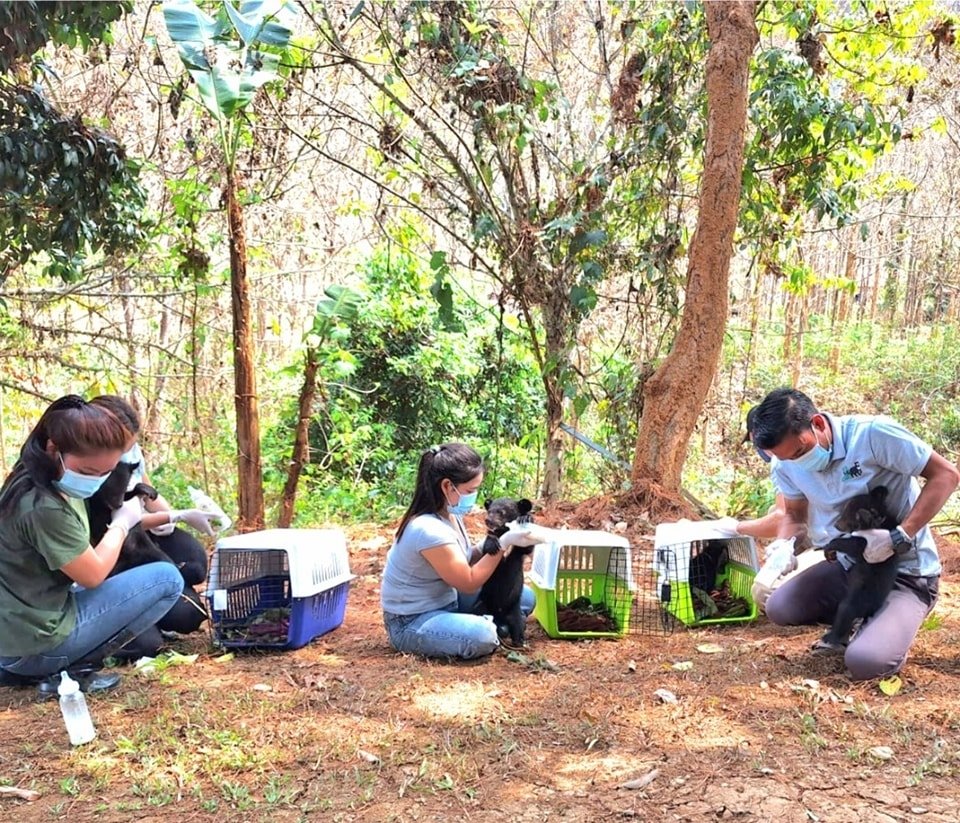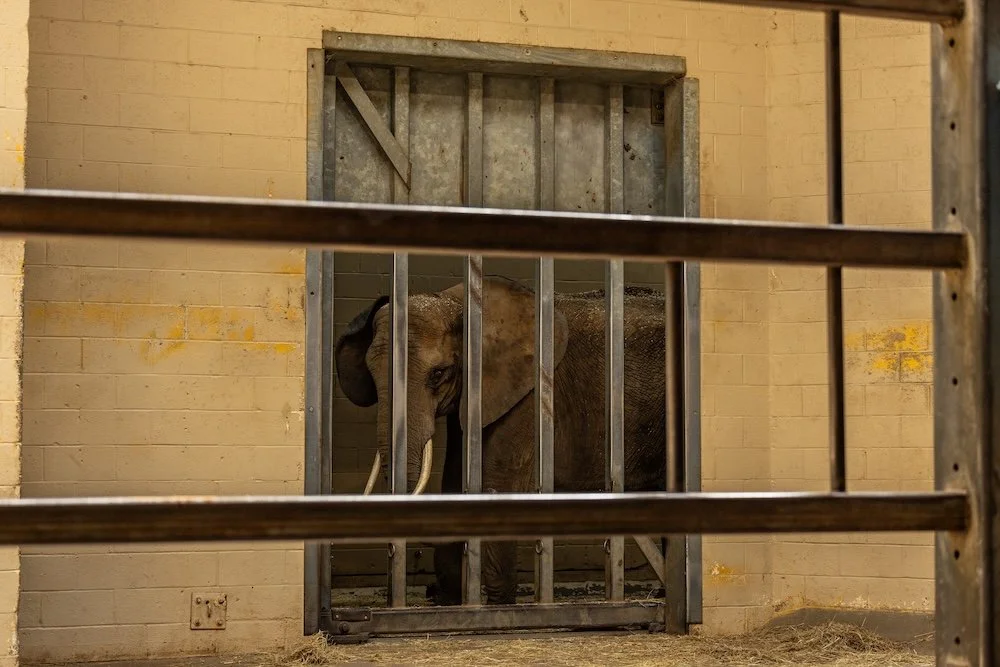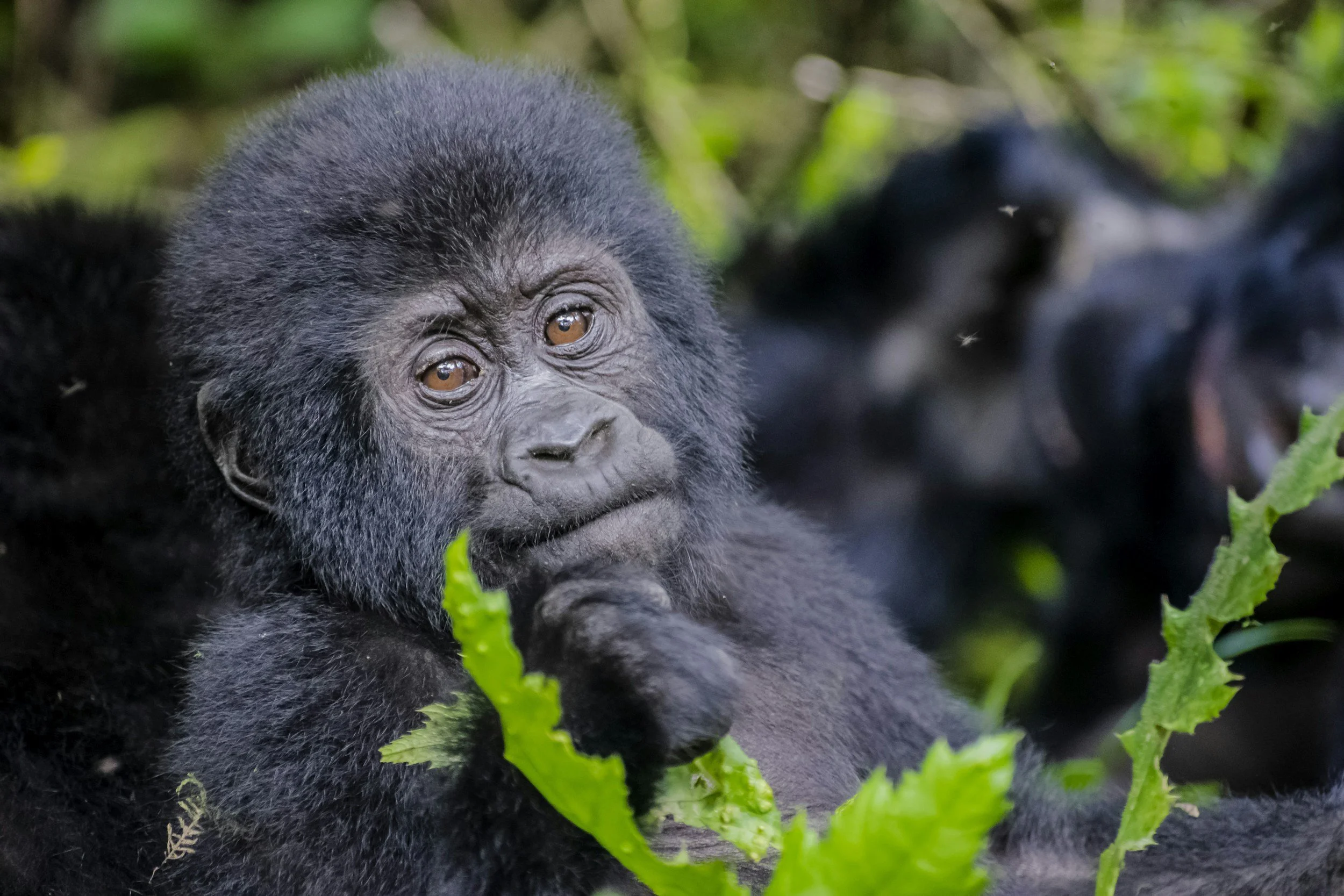Sixteen Bear Cubs Rescued from Wildlife Trafficker
The orphaned moon bears have been taken to a sanctuary after government officials in Laos discovered them being illegally kept at a house in the country’s capital.
One of the rescued bears. Credit: Free the Bears/Facebook
Sixteen bear cubs are now safe at a sanctuary after government officials in Laos discovered the vulnerable animals being illegally kept at a house in the country’s capital city of Vientiane.
The orphaned infants are all moon bears, an endangered species which is listed as vulnerable according to the latest assessment by the IUCN Red List of Threatened Species.
Authorities were initially alerted to the house when a neighbor reported the audible cries of the animals. After investigating the report, one Laos national suspected to be a major wildlife trafficker, was taken into custody.
Meanwhile wildlife rescue charity Free the Bears stepped in to offer urgent care for the confiscated cubs.
"When we arrived at the house there were bear cubs everywhere," Fatong Yang, animal manager with Free the Bears, told the media. “Cubs this small are extremely vulnerable. In the wild their mothers would never leave them and we suspect the mothers were killed by poachers.”
“There were bear cubs everywhere” at the raided house, rescuers said. Credit: Free the Bears/Facebook
Sadly, the rescuers reported that one cub had already passed away at the scene. However, the remaining sixteen received urgent health checks and feeds, and then were transported by road to the charity’s wildlife sanctuary in Luang Prabang.
Among the group are 10 males and six females, who weigh between 1.3kg and 4kg and are thought to be no more than four months old.
After the successful rescue mission, which is believed to be the largest bear cub rescue ever, the animals will now have a second chance at life at Free The Bears’ Luang Prabang Wildlife Sanctuary.
Rescuers feed the cubs. Credit: Free the Bears/Facebook
Also known as Asiatic black bears, the species faces a variety of threats including hunting and habitat loss due to logging and human expansion.
Moon Bears in the Horrific Bear Bile Trade
Moon bears are also poached and used in the controversial bear bile industry. Laos, along with Vietnam and China, are hotspots for the industry.
To acquire bear bile, bears are typically kept in very small cages where a syringe, catheter, or pipe is then used to regularly extract bile extracted from their gall bladder. The bile is sold for a high price in the lucrative Traditional Chinese Medicine (TCM) trade, as it is believed to help treat liver and gall bladder conditions in humans.
Despite cruelty-free alternatives to bear bile being available, the trade still continues - it’s estimated that there are currently more than 12,000 bears who are confined on bear bile farms. As bears can survive up to 35-years in captivity, many animals used in the industry will spend decades on these farms.
In the US, hunters are said to be helping fuel the trade for bear bile, by killing wild bears and selling their gallbladders. While many US states have laws that address the trade, they are fragmented and vary by state. Campaigners have been calling for a federal law that will fully prohibit the importation, exportation, and interstate trade of bear gallbladders. Add your name to support The Bear Protection Act here.
We Have A Favor To Ask…
Species Unite amplifies well-researched solutions to some of the most abusive animal industries operating today.
At this crucial moment, with worldwide momentum for change building, it’s vital we share these animal-free solutions with the world - and we need your help.
We’re a nonprofit, and so to keep sharing these solutions, we’re relying on you - with your support, we can continue our essential work in growing a powerful community of animal advocates this year.






